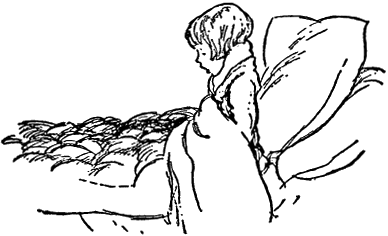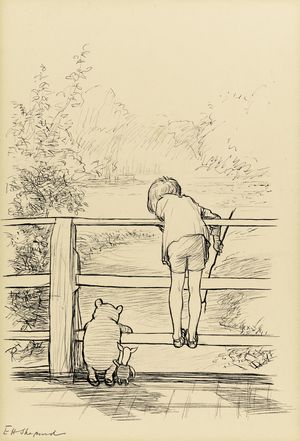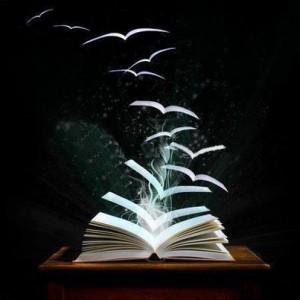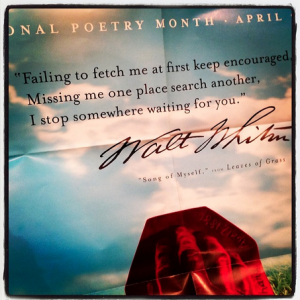When a couple of weeks ago, I was asked to pick a children’s piece to record as a segment for a voice-over demo, a cute little poem came to mind – something with sneezing. Via Dr. Google it was quickly retrieved on the internet. Here are the first lines:
Christopher Robin
Had wheezles
And sneezles,
They bundled him
Into
His bed.
They gave him what goes
With a cold in the nose,
And some more for a cold
In the head…
Sneezles is from The Complete Poems of Winnie-the-Pooh. It is such a quirky, melodically rhyming get-well-soon poem by the English author and poet A. A. Milne. The poem captures some of the advantages of being a sick child, which is (for some) being the center of attention. Especially the last line is in that sense very amusing. You can listen to my reading of the poem down below.
Milne was best known for his books about the teddy bear Winnie-the-Pooh and for various other children’s poems. He wrote Sneezles as a children’s poem for and about his son, Christopher Robin Milne, whose name – abbreviated to Christopher Robin – was the basis for the character in all of the Pooh books and poems. The character Winnie-the-Pooh was named after a teddy bear owned by Christopher, whose toys actually lent their names to most of the other characters in the Pooh books, except for Owl and Rabbit.
Above is an illustration for Sneezles by E. H. Shepard, the English artist and book illustrator who coined the appearances of all of Milne’s characters and which were equally popular to Milne’s writings.

One of E. H. Shephard’s most famous images of Winnie the Pooh actually just sold for £314,500 at auction, at three times its estimate. It formed part of Sotheby’s sale of children’s books: An ink drawing of the bear playing Poohsticks with Piglet and Christopher Robin, published in 1928. The illustration was featured in A. A. Milne’s second book, The House At Pooh Corner, and had been in a private collection since the 1970s.
All of Shephard’s illustrations are very quiet and intimate. They depict scenes of introverted characters, ones that are thoughtful and philosophical. They reflect the subtlety of Milne’s writings, which are amongst adults as quotes still hugely popular. One of my personal favourites is:
People who don’t think probably don’t have brains; rather, they have grey fluff that’s blown into their heads by mistake. ― Winnie the Pooh
Sadly, Disney adapted the Pooh stories into a series of features that became one of its most successful franchises. I personally, like these ink drawings so much better than the popularized Disney animations which have turned the airy, vulnerable and whimsically sketched characters into teletub-like, plump and one-dimentional, in-your-face characters. It actually pains me to think that some children will never get to see the original drawings.
Not that these works per se lack popularity; there’s even a annual National Awareness (or bearness?) Day for Winnie the Pooh, which was two days ago, on January 18.
So far, I haven’t gotten any work out of the demo so instead of letting it dwindle into forgottenness, I sent the recording to Record-A-Poem a poetry group initiated by the Poetry Foundation. Their poetry blog Harriet has been inviting people to post audio recordings of their favourite poems on their Soundcloud stream. The Poetry Foundation, the publisher of Poetry magazine, defines itself as “an independent literary organization committed to a vigorous presence for poetry in our culture. It exists to discover and celebrate the best poetry and to place it before the largest possible audience.”
Happily, my reading of Sneezles was added to their collection and can now be heard in their Soundcloud stream and through the widget posted below.












